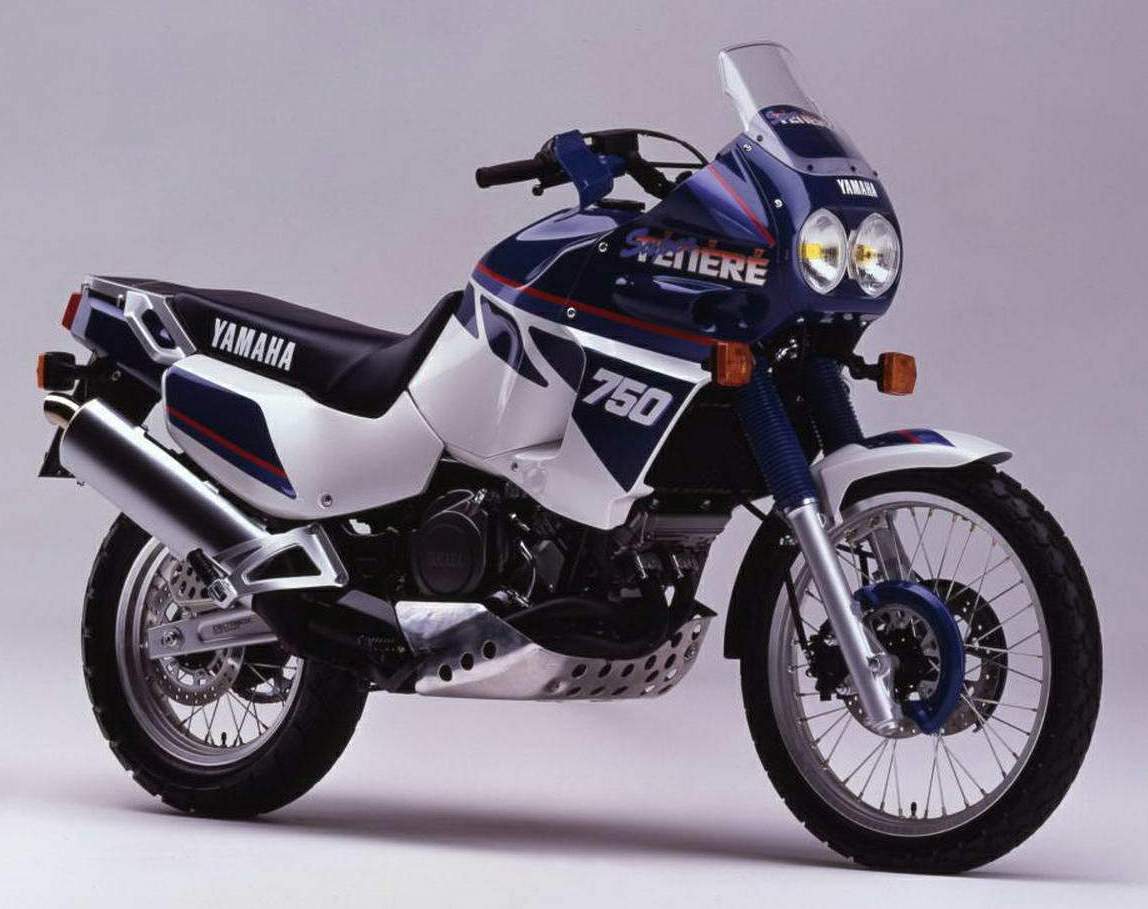
Yamaha XTZ 750 Super Ténéré SPECIFICATIONS, PRICE & IMAGES
https: //www.youtube.com/embed/-OD_OQYZd0c?feature=player_embedded” frameborder=”0″ allowfullscreen name=”I1″>
top: 0; margin-bottom:0″>BANANA REPUBLIC HAS MADE A TIDY SUM SELLING CLOTHING designed to
make the wearer look like a Beirut combat photographer, to people who’ve never
been any closer to that war-torn city than the Moroccan restaurant up the
street. And Yamaha is doing much the same thing with its XTZ750A Super Ténéré.
Not that there’s any attempt to deceive on either firm’s part. Both are selling
an image, one as romantic and about as tangible—as the scent of a dry desert
wind, and one that can be safely purchased with none of the risks associated
with the real thing. In Yamaha’s case, it’s the look of a Paris-Dakar Rally
bike, a haute couture item in Europe for the past decade and a half, and
the ultimate expression of European Mitty motorcyclist fantasies. It’s also a
shrewd move, given Yamaha’s research that shows a trend toward high-powered
dual-purpose machines among Euro-consumers. The bike you see here is a Canadian
model, lent to us by Yamaha Motor Canada Ltd. Think of the bike’s appearance in
these pages as a trial balloon for the American market, and as a service to our
many Canadian readers.
s log: Trying to ride this
thing hard off-road is a mistake. It feels the same as when you’ve accidently
run off the road on a street bike. Compared to real dirt bikes, the controls are
terrible—stiff clutch-pull; clunky, long-reach levers; and no front-brake feel.
The bike’s big, clumsy and awkWard as it is, and a rider needs all the feel at
his fingertips he can get. On sand, the front end washes out instantly.
Novices shouldn’t get anywhere near single-track stuff; you have to be real damn
good to ride on anything other than fireroads. It can get you places off-road
you couldn’t get to on a street bike—but just barely.
The dyno simply reaffirms what riding impressions suggest: The
Ténéré twin is nothing short of a marvel, one of the strongest twins we’ve ever
lashed to the pump. In fact, in recent memory, only Ducati’s biggest twins, the
851 and 906, best the Ténéré’s 59.8 peak horsepower and 43.7 pound-feet peak
torque. Compared to twins closer to its displacement, the Ténéré stands head and
shoulders higher, with 7 more horespower at its peak than Suzuki’s VX800, 5 more
than Ducati’s 750 Sport, and a whopping 19 more than Honda’s XL600V Transalp.
Compared to 750 inline-fours, the Ténéré falls short on peak power, but
approaches them in torque; it even outpowers Honda’s torquey VFR750 in the
mid-range, with 6 more horsepower at 6500 rpm. The terrain of the Ténéré’s power
and torque curves is wide and flat. In fact, the torque curve is one of the
flattest in motorcycling, never dropping below 88 percent of its peak from 3500
rpm to redline.
simply burns down bikes of its own kind: It’s almost
a second quicker and 10 mph faster through the quarter than Honda’s lighter
Transalp or BMW’s mammoth Paris-Dakar, and substantially quicker in roll-ons.
What the Yamaha does to a single such as Kawasaki’s Tengai is too embarrassing
to mention.
t progressive: Dive into a turn too hot, and you get little initial stopping power. Grab
harder, and you get more than you wanted, making the softly sprung fork
nose-dive, which unloads the rear end and causes a mild oscillation.
drive machine: Do your braking early and gently, then
guide the bike through the turn under power to keep it stable on its suspension,
and accelerate out. Using such techniques, you can get a surprising turn of
speed out of the Ténéré, although it’s most at home at a less frenetic pace—as
will be the rider.
motorcycle could benefit from such a seat: broad, flat, soft, and deep.
The question remains: Is there a market in this country for the
Super Ténéré? Yes, at least a small one. However, in the U.S., where
Paris-Dakar-style Mitty-mo-torcycling is the exception rather than the rule, the
Yamaha must prosper or fail on what it does, not what it seems to be. If the
Ténéré offers a combination of performance and image that fits your needs, you
can vote with your pen by writing to Yamaha Motor Corp., 6555 Katella Ave.,
Cypress, CA 90630. There’s a faction in the company that’s intensely interested
in bringing the bike to this country. At the current exchange rate, though, the
Ténéré would come in at $6000 or more; currently, it sells for $8599 ($7390
U.S.) in Canada, including that country’s greater import duties. Only BMW’s
R100GS Paris-Dakar is more expensive.

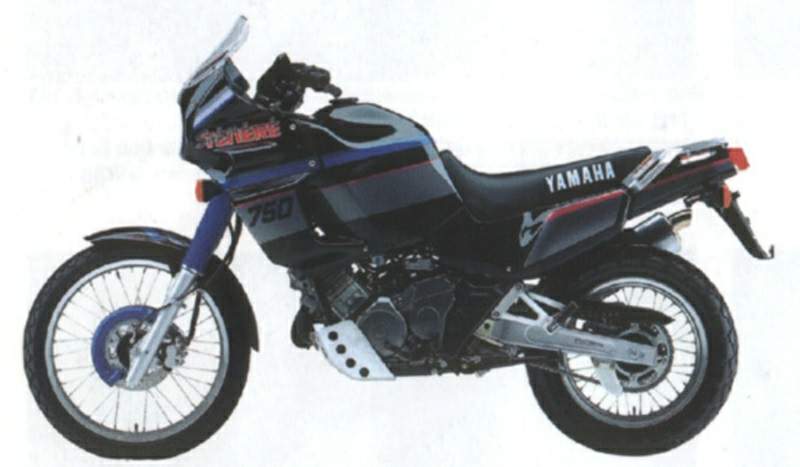
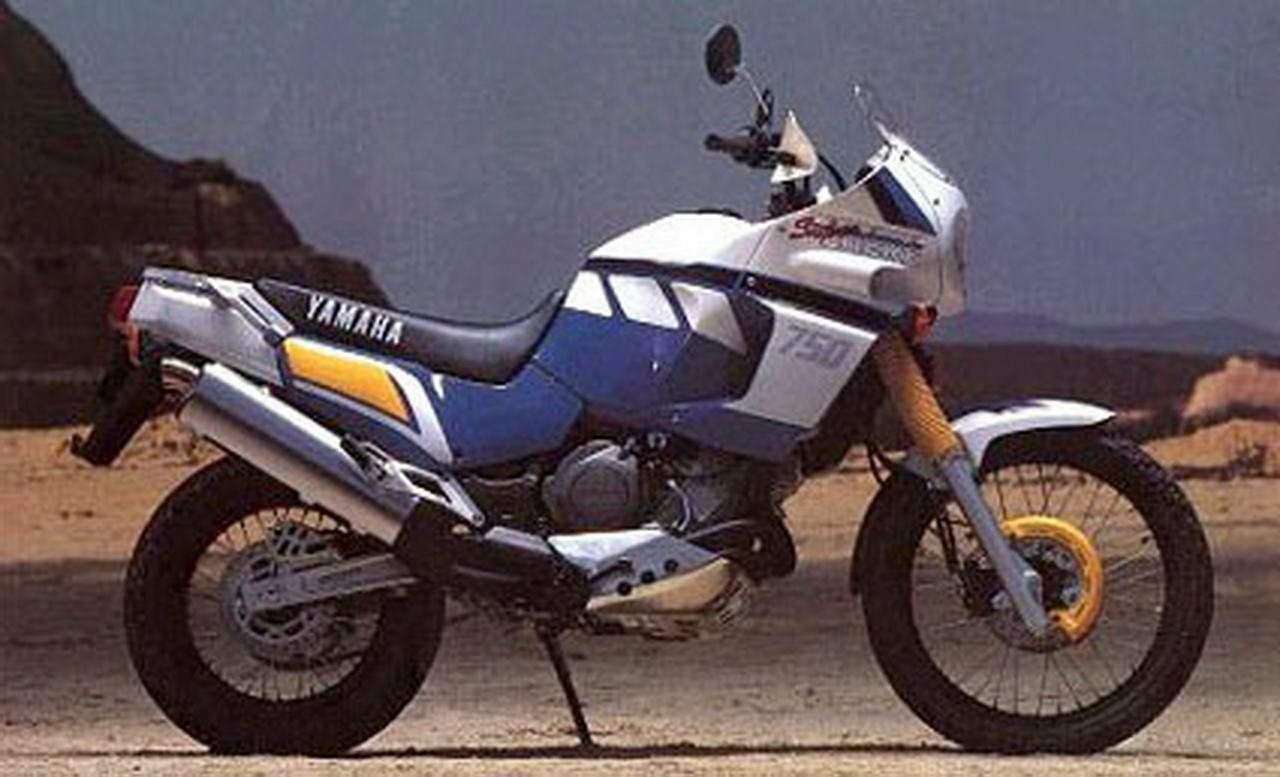
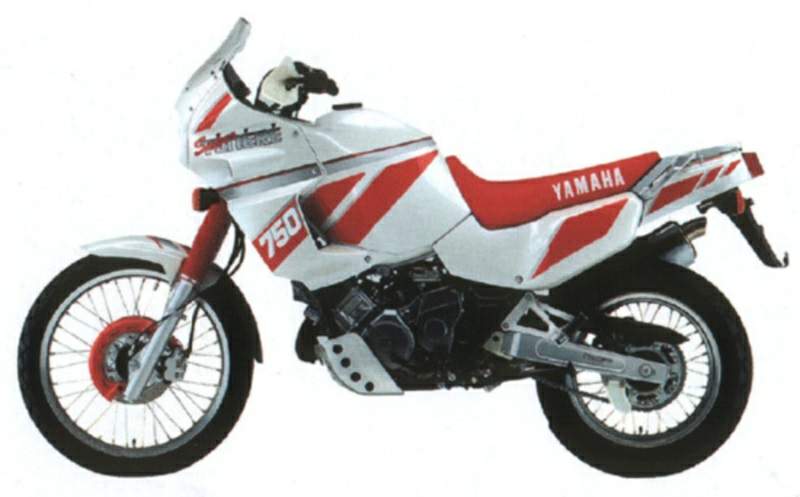
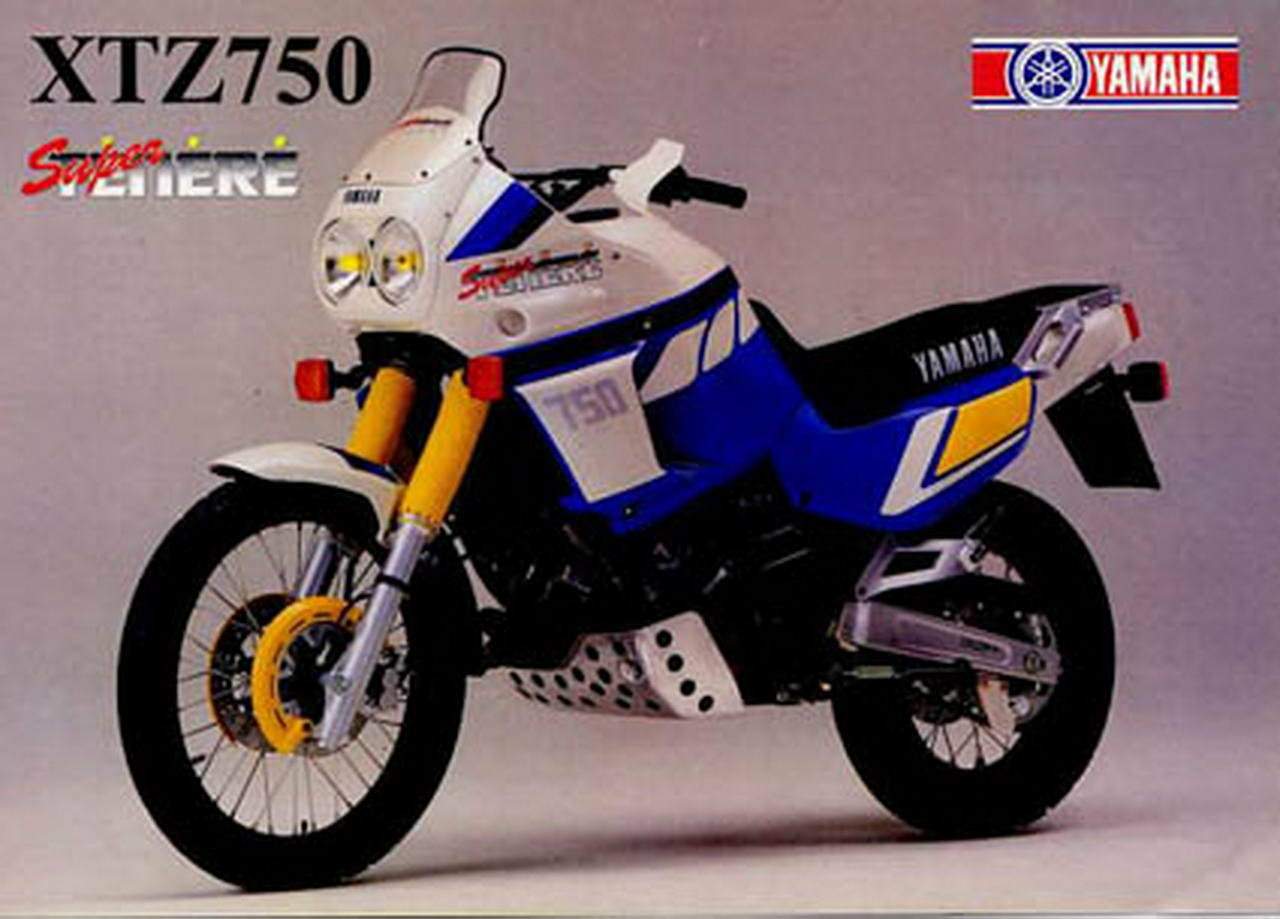
Bike Features
Make Model:
Yamaha XTZ 750 Super Ténéré
Year:
1990
Engine:
Four -stroke, parallel
twin cylinder, DOHC, 5 valves per cylinder
Capacity:
749 cc / 45.7 cu-in
Bore x Stroke:
87 x 63 mm
Cooling System:
Liquid cooled,
Compression Ratio:
9.5:1
Lubrication:
Wet sump
Engine Oil:
20W/40
Exhaust:
Single stainless steel pipe
Induction:
2x 38mm Mikuni BDST38 CV carburetors
Ignition :
TCI (Transistor Controlled Ignition)
Spark Plug:
NGK, DPR8EA-9
Starting:
Electric
Max Power :
69.3 hp / 54 kW @ 7500 rpm
Max Torque:
68 Nm / 50.2 lb-fts @ 6750 rpm
Clutch:
Wet, multiple discs, cable operated
Transmission :
5 Speed
Final Drive:
Chain
Frame:
Steel, Single cradle frame
Front Suspension:
Telescopic forks.
Front Wheel Travel:
235 mm / 9.2 in
Rear Suspension:
Monoshock, adjustable
preload compression damping adjustment
Rear Wheel Travel:
215 mm / 8.4 in
Front Brakes:
2x 245mm discs
Rear Brakes:
Single 236mm disc
Front Tyre:
90/90-21
Rear Tyre:
140/80-17
Dimensions:
Length 2285 mm / 90 in
Width 815 mm / 32.1 in
Wheelbase :
1505 mm / 59.3 in
Seat Height :
865 mm / 34.1 in
Dry Weight :
203 kg / 447.5 lbs
Wet Weight:
236 kg / 520.3 lbs
Fuel Capacity :
26 Litres / 6.6 gal
Consumption Average:
16.5 km/lit
Braking 60 – 0 / 100 – 0:
14.25 m / 42.06 m
Standing
¼ Mile :
12.8 sec / 162.1 km/h
Top Speed:
192.0 km/h / 119.3 mph
Road Test:
Bike Magazine Group Test 1992
Motosprint Adventure Group Test
Motosprint Group Test 1992
